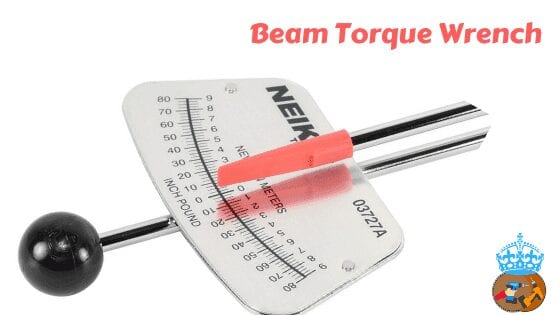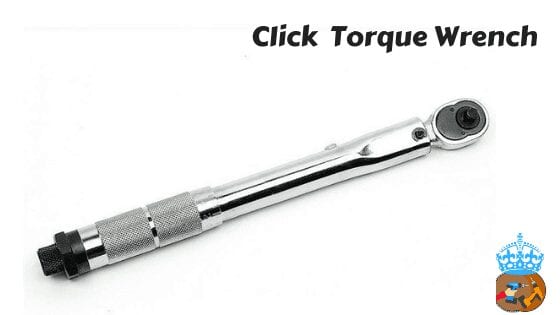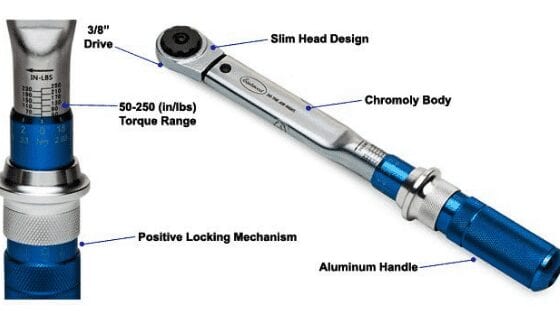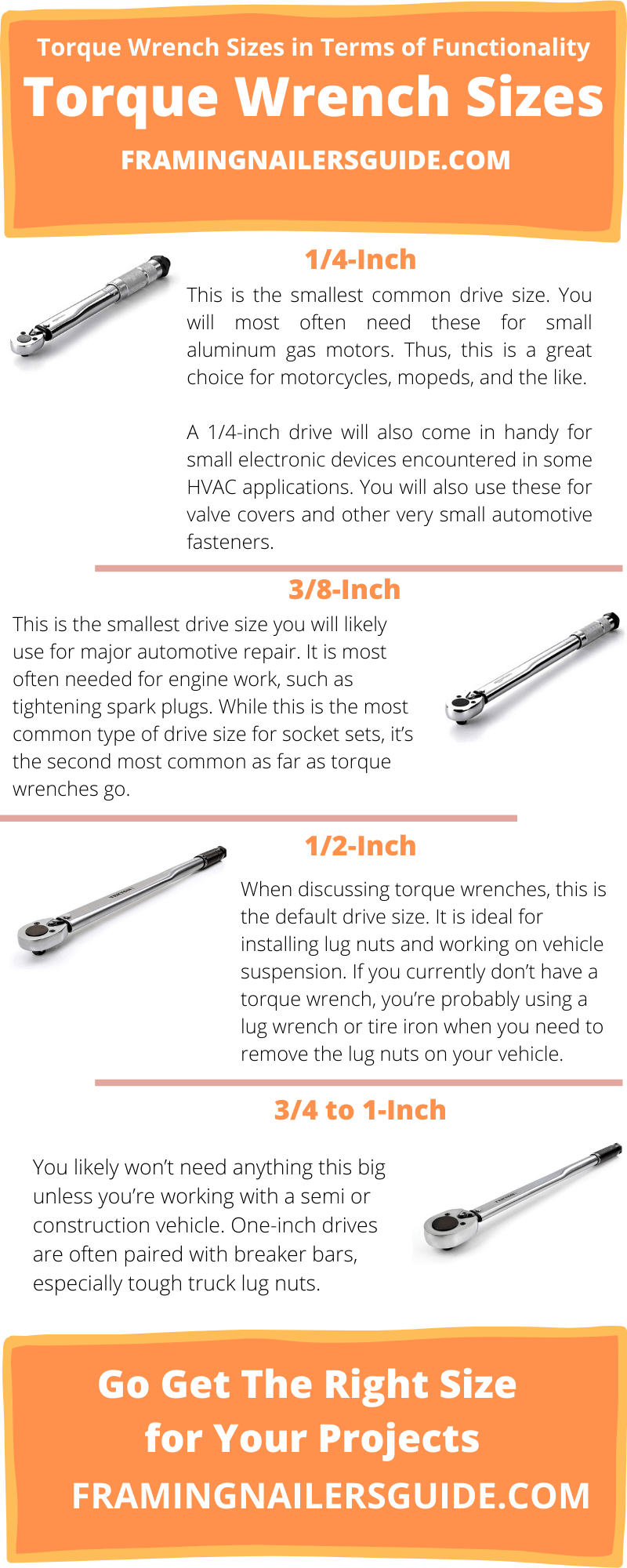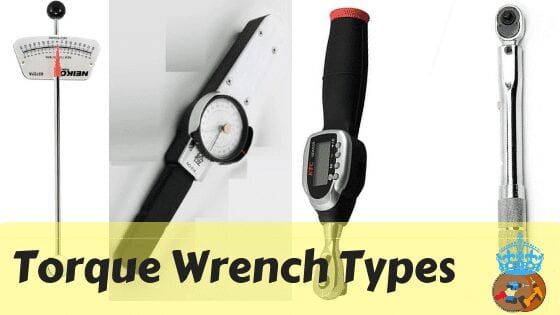
Table of Contents
FramingNailersGuide is reader-supported. If you buy an item through the links on this site, we may earn a small commission at no extra cost to you. Learn more
Last Updated on May 8, 2021 by Mamunur Rashid
Torque wrenches are a blessing for any handyman or mechanic or hobbyist DIYer. But once you end up with the wrong size and power in hand, the situation can backfire.
Until or unless you’ve got the right power (torque), quality brand, and size in your top-quality torque wrench list, that will be almost crap for you. It’s even worse for people who’re new with this little kit.
Therefore, we’ve come up with a complete guide on the most convenient torque wrench types and their applications. We’ve discussed it from both points of view of torque power, and size. Either way, you should be figuring out the essential help you need.
Enough of the introduction. Let’s get going about the types of torque wrenches-
What Are the Basic Torque Wrench Types?
#1. Beam Torque Wrench
Beam torque wrenches are the simplest and basic type of torque wrench available in the market. A lever arm separates the handle and the head. Also, it can be bent slightly to deviate the level of pressure.
One important feature that this kind of wrenches has is, a scale moves to give you reading while you’re applying torque on it. Also, a needle pointer is there to show up the weight of the product.
No products found.
#2. Click Torque Wrench
Click torque wrenches are a bit sophisticated version of what we can find in a regular torque wrench. While using, the user can present the level of work that should be done with the wrench.
Once the level is reached, it will automatically start slipping off. The design of click wrenches is also made in a more precise way. It prevents or over-stretching and overreaching.
No products found.
#3. Dial Torque Wrench
Dial torque wrenches are made in a way to show up the data on a dial. When it comes to capturing the finishing torque that’s applied to a fastener, this one can provide high accuracy.
Dial torque wrenches are usually used in the case of controlling instruments or to check the torque pressures on them. Also, jobs like auditing, join the testing, etc. are also idea jobs for it.
No products found.
#4. Digital/electronic torque wrench
Quality Electric torque wrenches are one with the minimum manual effort required. These are programmable, and you can set limits to their capacities.
To transducer and determine the torque necessary/forcer needed, there is a strain gauge attached to a torsion rod. Also, there is a small chip that has a memory stick attached to it. They can remember any reading which is accessible from your computer as well.
No products found.
#5. Hydraulic Torque Wrenches
In the case of hydraulic torque wrenches, the idea is to apply torque on a deflecting beam instead of through a coil spring. That eventually gives more accuracy and lessens up the effort you need to use a torque wrench. Also, you can hear the visual impacts of the mechanism to ensure appropriate and safe application.
No products found.
#6. Micrometer Torque Wrenches
These are the different torque wrenches with both forward and reverse movement capacities. There is a quick-release trigger that makes it even easier to use.
No products found.
Torque Wrench Sizes
In the case of both automotive and industrial uses, torque wrenches are of various sizes. The capacity and size- both range from small to medium and large torque wrenches.
Torque wrenches of small sizes are usually of any size within 30 to 200 in. lbs which usually has square drives of 1/4 or 3/8 square drive. Often, for everyday use regarding low torque requirements are the best place to use this kind of small wrenches.
Medium-sized models usually feature a higher torque limit that lies within 20 to 30 ft-lbs. For little medium-range applications like automotive, garage, or mechanic works, these are the torque wrenches that you should go for.
Talking about the most significant type of torque wrenches, the application seems to be substantial as well. They usually come with torque limits from 250 ft. lbs and beyond.
The drive adapter that they are generally supplied with is 1/2 square drives. Works like engine rebuilding and reconditioning are the ideal cases when you should use them.

Image Credit: rustyautos
What You Should Keep in Mind to Find the Right Size
If you’re an expert mechanic, you might have a clear perception of the correct torque wrench you need. But in case you’re new to the world of torque wrenches, things will look a bit creepy.
Because not every size of torque wrench is the right fit for every job. Here we are sharing some practical tips so that you can find the right size-
#1. Torque Limit
The first and foremost factor for every torque wrench you can find. You need to sort out the type of works you will be doing. At least you should set a range. And move forward to see the model that can deliver that much.
#2. Have an Eye on The Material
The torque range isn’t the only quality defining a factor of a torque wrench. It should also be made of durable materials that can undergo even the most robust of workloads.
#3. Torque Wrench Calibration
To attain maximum efficiency in whatever job you do with the torque wrench, calibration is a must. You must go for a model which is calibrated as per to the standard, and through proper equipment. Take help from a technical expert if you need one and don’t forget to know how a torque wrench works.
In Conclusion
Thank you for being until the very bottom of the article. Hope our guide on different types of torque wrenches comes up to be a helping hand to choose the right one from various torque wrench types.
Related Reading:
#1. What are the best bike torque wrenches?

